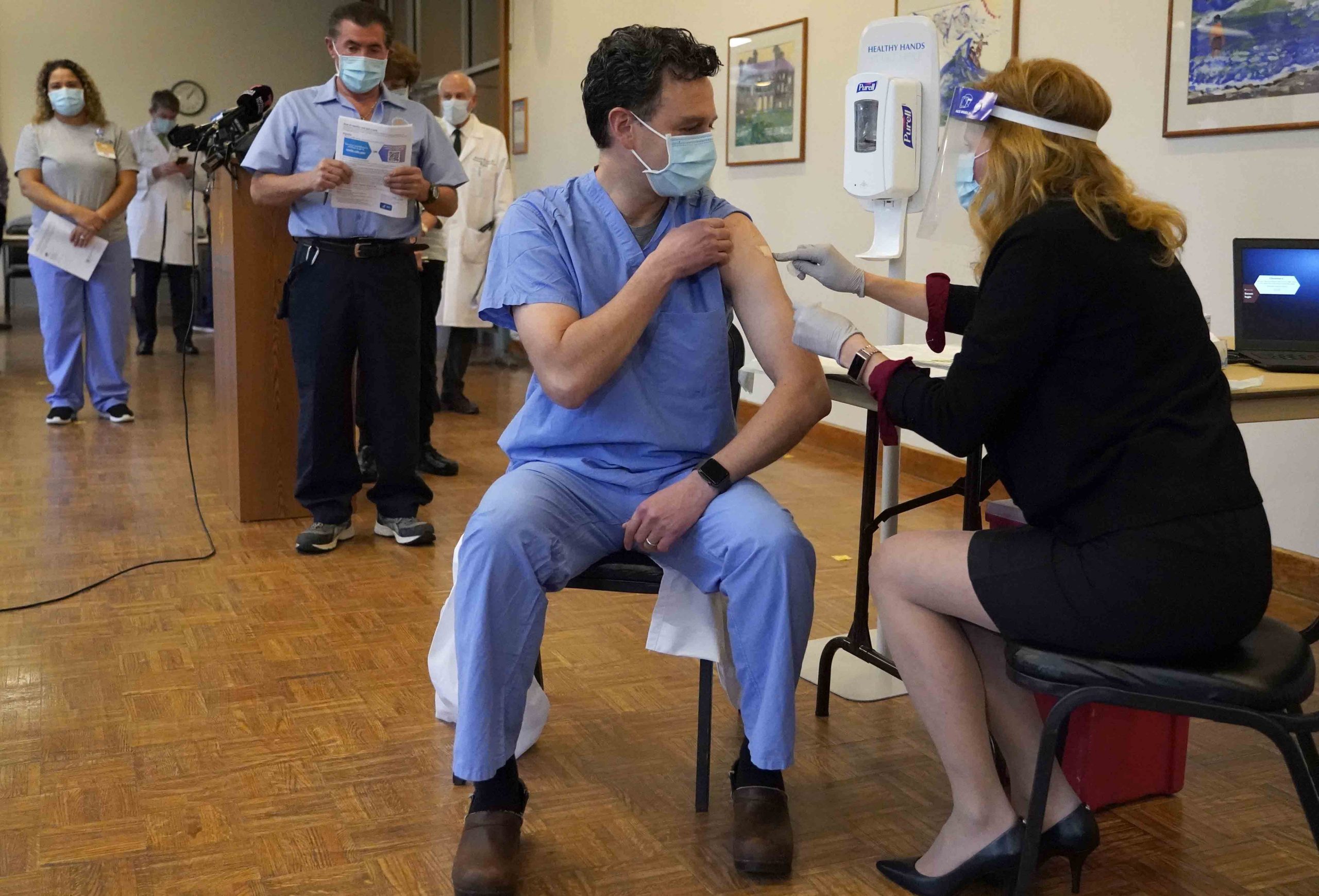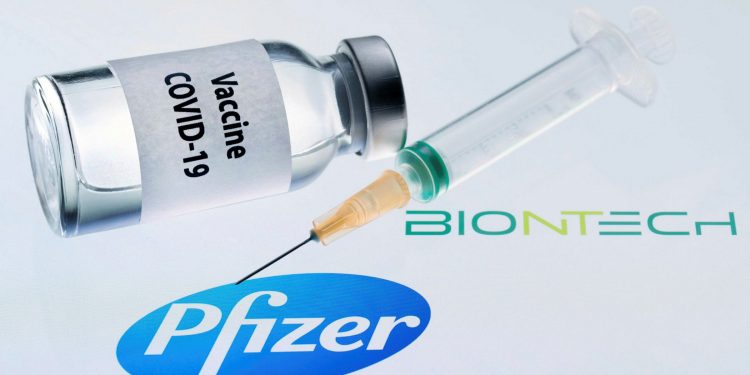New York: Pharmaceutical giants Pfizer and Moderna have published data showing their COVID-19 vaccines to be more than 90% effective. The results of the two companies have been lauded the world over as a major achievement in the field of science. Above all the vaccines have been given a new ray of hope to the entire world. The Pfizer-BioNTech COVID-19 vaccine has already received emergency use authorisation in countries like the UK, the USA and Bahrain. Vaccination have already started in these countries.
But amid the excitement, misinformation about these vaccines is still spreading online. Questions like so ‘how do these vaccines work? Are they safe? How long will their effect last?’ are doing the rounds.
Here are some important points that one needs to know to clear doubts.
The COVID-19 vaccines developed by Pfizer and Moderna work by delivering some of the virus’s genetic material into the body without administering any actual viral components. This approach, using a type of molecule called messenger RNA, has never before been approved. But according to experts, using a naturally occurring molecule is a source of reassurance.
“It is a new type of vaccine, but remember, we all have messenger RNA in our body,” Dr Paul Offit, a vaccine expert at the Children’s Hospital of Philadelphia and a member of the FDA’s advisory panel has been quoted as saying by ‘Reuters’. “It’s not like it’s a novel molecule – it’s a molecule that we all see,” he added.
Both the Pfizer and Moderna products were tested using essentially the same criteria as other vaccines
The speed at which these vaccine trials were conducted has raised concerns about the quality and design of their supporting research. However, while the trials were conducted in a relatively short amount of time, they still mirrored traditional vaccine trials.

For these trials ‘the construct is the same,” Offit explained. “Roughly half get placebo and half get the vaccine, and then they’re followed for a certain period of time.”
We don’t know how long we’re protected
Although many expect the vaccines will be granted emergency authorisation, regulators are waiting on more data before granting a full approval. That’s because one major difference between the ongoing COVID-19 vaccine trials and similar previous trials is the length of follow-up time.
Also read: Pfizer and BioNTech to supply additional 100 million doses of COVID-19 vaccine to US
“In terms of efficacy, you’re only going to know that the vaccine is effective for a couple months, maybe three months. You don’t know if it’s effective for six months or a year, and that’s the critical difference,” Offit explained. “That’s why the FDA is not licensing this product – because it wouldn’t be licensed within such a short period of time,” he added.
Vaccines are generally safe in the long-term. And these are likely no different.
For some, the speed of a likely FDA authorisation raises a concern about whether long-term side effects may be missed. Experts largely aren’t overly concerned, based on what they’ve seen with earlier vaccines. Long-term side effects from vaccines are extremely rare. Bad reactions typically happen within a few weeks of receiving a shot.
A second reason experts are less worried is because there will be regular monitoring of all vaccine recipients, meaning if complications arise they can quickly be addressed.
Vaccines are our best chance of returning to normal
Vaccine specialists interviewed by ‘ABC News’ said that authorising a COVID-19 vaccine includes a careful weighing of risks and rewards, and that the data collected so far show that they’re safe. Normally, vaccine studies take two or three years, but that’s not really an option during the COVID-19 pandemic.
Do you want to wait to do a two- or three-year trial when 260,000 people died this year?” Offit said. “And so far, the clinical trials have mitigated a critical amount of risk,” he added.







































